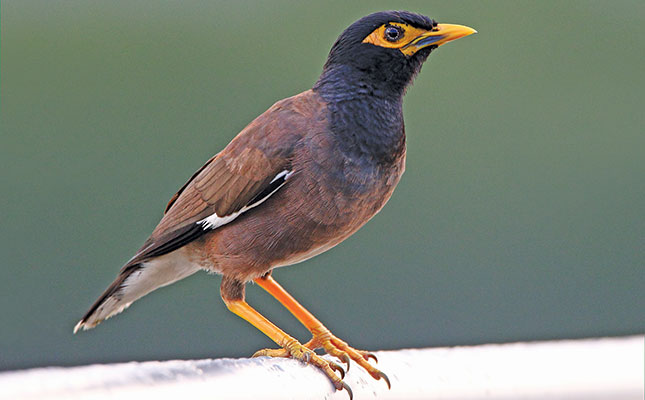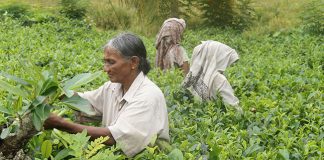
Photo: Dr Llewellyn Foxcroft
One of the most invasive bird species in the world, the Indian mynah was native to southern and south-eastern India and had reached South Africa about 100 years ago, where it had quickly adapted to local conditions, to the peril of indigenous species, Foxcroft said.
He described the birds as omnivorous with strong territorial instincts, adding that since their arrival in the country, they had multiplied into the millions.
READ ‘Adverse consequences of lion cub petting’
“Although we don’t know the full extent of the mynah invasion in the [KNP], these birds are known for robbing indigenous birds of their nesting sites.
“This could, in the long term, have a negative impact on local bird populations. [Mynahs] are also very opportunistic feeders and eat virtually everything they come across, even pet food in urban settings,” Foxcroft told Farmer’s Weekly.
He added that in the KNP, mynahs had been observed mimicking the behaviour of egrets, following game herds to feed on the insects disturbed by the animals.
“Mynahs are also opportunistic nesters and don’t shy away from nesting in and on [human-made] structures.
READ Road-tripping and birdwatching in SA
“The most effective way to keep them away is to destroy their nests. I also call on the public not to feed them at all.
“Towns and cities have provided ideal habitats for the birds.
“In the KNP, mynah numbers have grown so much that they’re now spreading into tourist camps and staff villages,” Foxcroft said.
He added that research had shown that since the species was first recorded in the KNP in 2000, the birds’ numbers had increased dramatically, with 66% of the total 128 sightings occurring during the past three years. Thirty- two birds had been observed nesting or breeding.
This data suggested that the Indian mynah was in the initial phase of establishment in the KNP.
According to Foxcroft, all mynahs found in the park were culled. The park’s staff also actively prevented the birds from settling by discouraging them from nesting, and closing off areas which they seemed to favour, he said.












